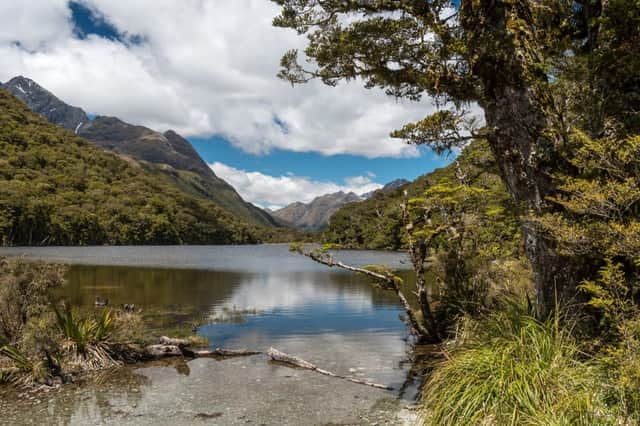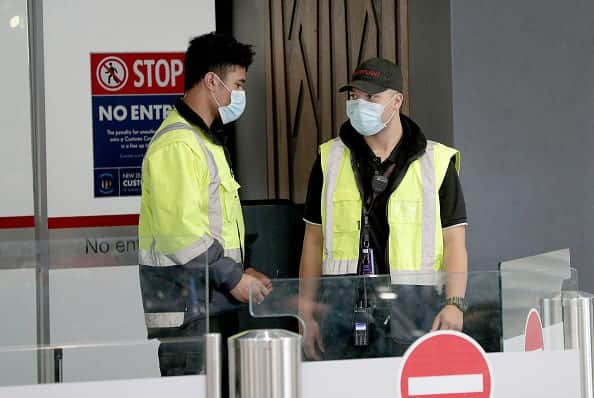Is it safe to visit New Zealand? The latest travel advice after flooding and coronavirus restrictions


Severe flooding and heavy rainfall in New Zealand have forced evacuations to be carried out, after nearly 200 tourists were left stranded.
A landslide hit the Howden Hut, near Fiorland’s Lake Howden at around 1.30am on Monday 3 February, leaving two people with minor injuries and more than 30 people awaiting evacuation from the site.
Advertisement
Hide AdAdvertisement
Hide AdMeanwhile, the country has banned foreign travellers from China amid the coronavirus outbreak.


Here’s the latest travel advice for New Zealand.
State of emergency
A state of emergency was declared on Monday 3 February after 382 people were left trapped in the Fiordland region, with torrential rain causing slips and flooding damage, restricting access to roads.
Helicopter pilots began evacuating people from huts in Hollyford, Pyke, Big Bay and Martin’s Bay on Tuesday 4 February, where around 100 people are believed to be stranded, ABC News reports.
A further 195 tourists in Milford Sound are also still stranded and will remain there until Wednesday when they can be safely evacuated.
Advertisement
Hide AdAdvertisement
Hide AdEmergency Management Southland wrote on Facebook: “Weather conditions and road closures mean it is best to keep the tourists in Milford until they can be safely transported out.
“Meanwhile, roads are closed throughout Southland and rivers are rising.”
More heavy rain is expected in the region and the state highway is expected to remain closed all week.
Elsewhere in Gore, fire and emergency staff have been working to help a number of houses that have been hit by surface flooding.
Advertisement
Hide AdAdvertisement
Hide AdTourists in the affected areas can keep up to date with the latest news and travel advice on the NZTA Otago/Southland Twitter page.
New Zealand remains on high alert and has travel restrictions in place in a bid to prevent the spread of coronavirus (Photo: Getty Images)
Is it safe to travel to New Zealand?
New Zealand has temporarily closed its borders to all foreign nationals travelling from, or transiting through, mainland China as part of an effort to contain the spread of coronavirus.
The Ministry of Foreign Affairs and Trade has also raised its travel advice to New Zealanders for all of mainland China to “Do not travel” - the highest level - while border screenings have been increased to prevent the virus arriving in the country.
Advertisement
Hide AdAdvertisement
Hide AdThe ban in New Zealand follows similar travel restrictions enforced in the United States, Australia, and eight other countries, barring foreign travellers from China.
The UK Foreign Office has issued this latest travel advice for tourists heading to New Zealand: “On 2nd February New Zealand announced temporary restrictions on travellers (including those transiting) from mainland China in response to the coronavirus outbreak.
“Given the fast changing situation, you should check the latest entry requirements for your destination on the New Zealand Immigration website or check with your airline before you travel.
“At least eight weeks before your trip, check the latest country-specific health advice from the National Travel Health Network and Centre (NaTHNaC) on the TravelHealthPro website.
Advertisement
Hide AdAdvertisement
Hide Ad“You should comply with any additional screening measures put in place by the New Zealand authorities. Further advice is available from Public Health England, and the TravelHealthPro website.
A global health emergency
The coronavirus outbreak has been categorised as a global health emergency by the World Health Organisation, with cases confirmed in several countries including the UK, Canada, Australia, Germany and Japan.
Most cases have been recorded in Hubei province, whose capital city Wuhan is the epicentre of the outbreak, while several countries, including Britain, have evacuated hundreds of their citizens from the infection zone.
The number of confirmed cases of infection has now increased to more than 17,000 in China alone, while two people - a University of York student and one of their relatives - are being treated for the virus in the UK.
The death toll from the virus is now at some 361 people in China, with one more fatality having been recorded in the Philippines.